Introduction
In today's fast-paced digital landscape, conversational AI is revolutionizing the way humans interact with technology.
Imagine chatting with a virtual assistant who understands your needs, offers personalized recommendations, and provides instant support—like having a helpful friend available 24/7!
A recent study by Gartner found that by 2025, 75% of customer service interactions will be powered by AI, highlighting its transformative impact on communication.
From enhancing customer service experiences to streamlining e-commerce shopping journeys, conversational AI is not just a trend; it’s the future of engagement.
These intelligent systems leverage advanced technologies like natural language processing and machine learning to create seamless interactions that feel more human than ever.
Whether you're looking for quick answers, tailored suggestions, or even support in healthcare, conversational AI has got your back. Dive into the world of conversational AI and discover the endless possibilities it brings to the table!
What is Conversational AI?
Conversational AI is a revolutionary technology that empowers machines to engage in human-like conversations.
By leveraging natural language processing (NLP), machine learning, and speech recognition, these systems can understand and respond to users in a more intelligent and nuanced way.

Unlike traditional chatbots that rely on rigid scripts, Conversational AI solutions can adapt to the flow of conversation, providing personalized interactions that enhance user experience.
You can find this technology at work in popular virtual assistants like Siri and Alexa, as well as in various industries such as healthcare and customer service. With its ability to create dynamic conversations, Conversational AI is reshaping how we interact with technology.
How does Conversational AI work?
To fully appreciate how Conversational AI operates, it's essential to understand the key technologies that power it.
These technologies combine to create an intelligent system capable of processing human interactions naturally.
- Natural Language Processing (NLP): This technology enables the AI to comprehend human language, converting it into a format that machines can analyze.
- Machine Learning: Through this process, the system learns and improves from past interactions, enhancing its responses over time.
- Speech Recognition: This allows Conversational AI services to interpret spoken language, making the interaction feel more intuitive and less mechanical.
Together, these technologies create a seamless experience, making users feel as though they’re conversing with a real person rather than a mere program.
The Potential of Conversational AI
The true potential of Conversational AI lies in its wide-ranging applications, which are transforming various sectors. This technology goes beyond being a mere customer service tool; it’s a catalyst for operational excellence.
- Task Automation: By automating repetitive tasks, Conversational AI provides efficient solutions that save time and resources.
- 24/7 Support: Offering round-the-clock assistance ensures that customers have access to help whenever they need it.
- Mental Health Assistance: Innovative uses include providing support in mental health scenarios, and demonstrating the versatility of Conversational AI.
- Business Adoption: Companies are increasingly recognizing the best Conversational AI technologies to enhance efficiency and customer satisfaction.
- Operational Benefits: The benefits of Conversational AI include reduced costs, improved user engagement, and the ability to offer personalized experiences.
Use Cases of Conversational AI
In this section, you'll find the different use cases of conversational AI and how it benefits them.
Popular uses cases of conversational AI are like healthcare, customer service, e-commerce, banking and finance, fraud detection, education and entertainment. So, let's begin with the conversational AI in healthcare.
Healthcare
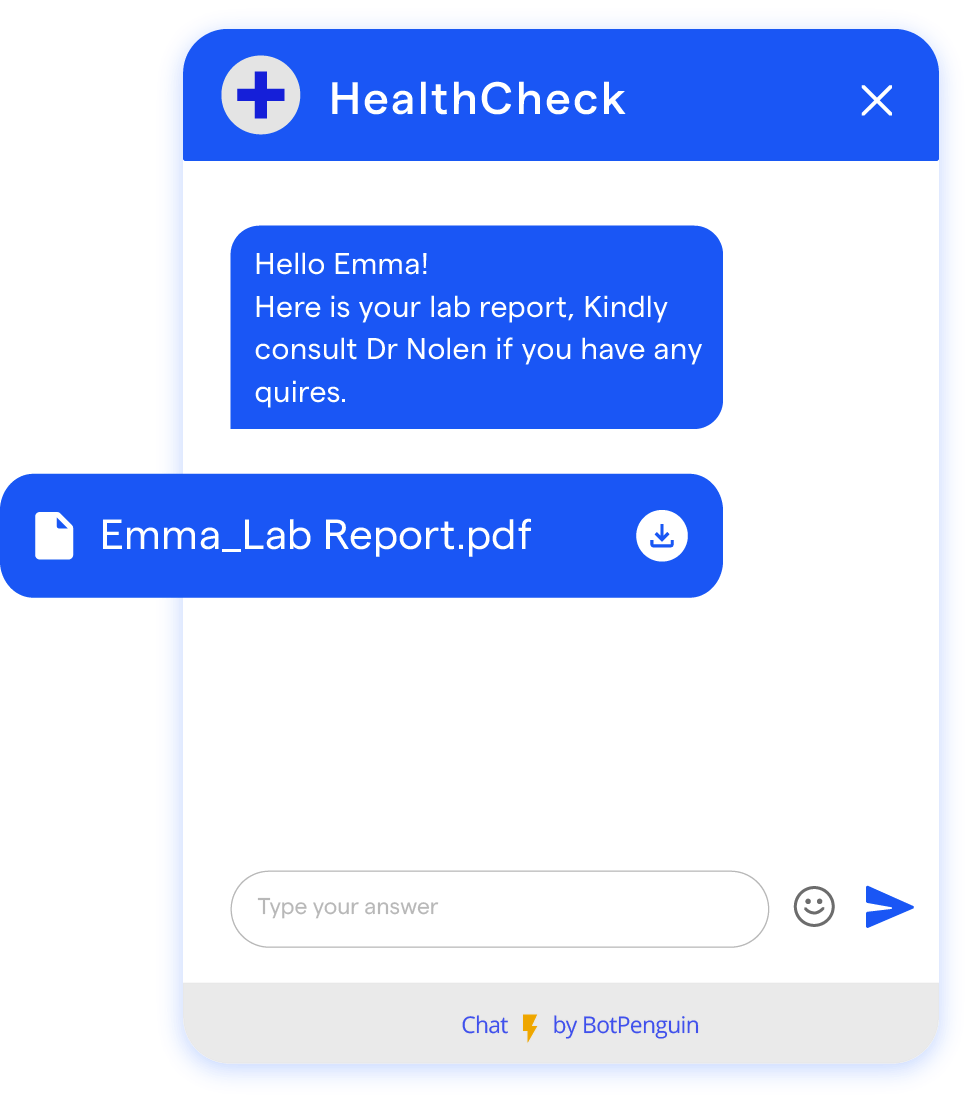
Conversational AI is revolutionizing the healthcare sector, providing innovative solutions that enhance patient care, streamline administrative processes, and deliver timely support.
With the integration of virtual health assistants and medical chatbots, healthcare providers can now offer efficient and personalized care to patients.
Virtual Health Assistants
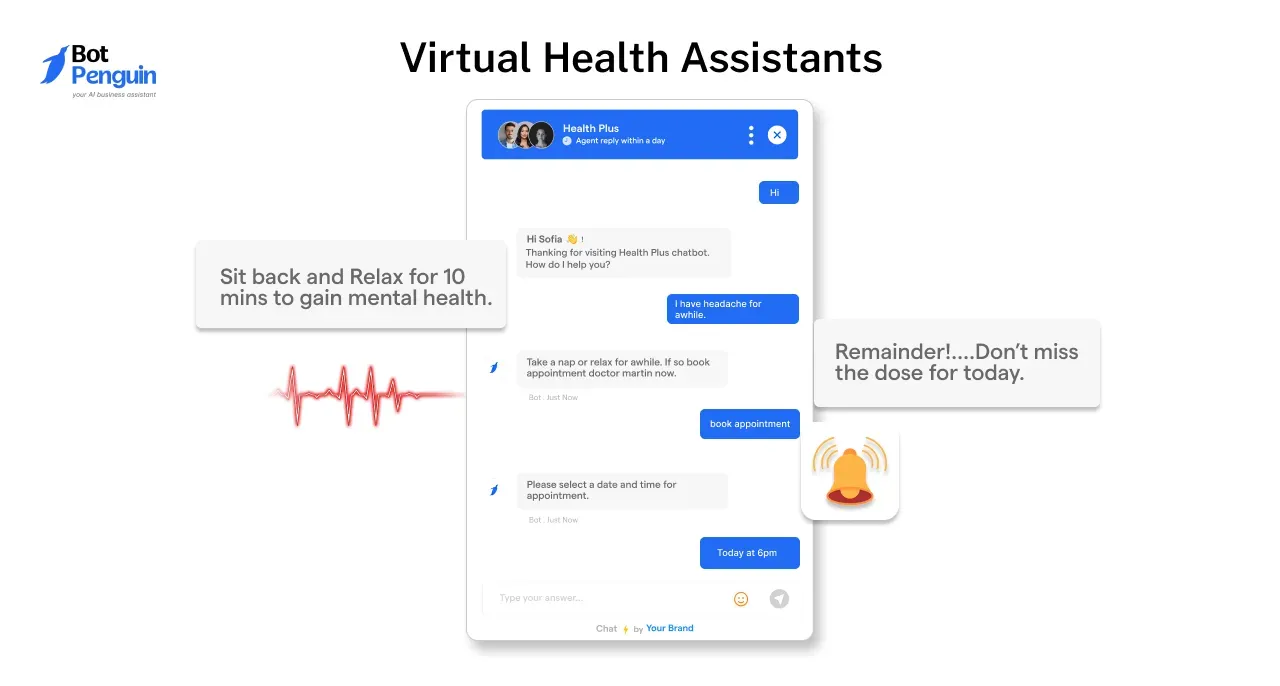
Virtual health assistants are a groundbreaking application of Conversational AI in healthcare. These AI-driven tools deliver immediate, personalized assistance directly to patients, transforming how care is accessed.
- Symptom Checkers: Tools powered by Conversational AI, like the symptom checker developed by Buoy Health, allow patients to input their symptoms and receive possible diagnoses within seconds.
This immediate feedback helps patients make informed decisions about seeking medical attention, offering accessible support when an in-person visit isn't feasible.
- Medication Reminders: Conversational AI services are crucial for medication adherence. Platforms like Medisafe use virtual assistants to send alerts and instructions, ensuring patients follow their treatment regimens effectively. This reduces the risk of missed doses and improves overall health outcomes.
- Mental Health Support: Tools such as Woebot leverage Conversational AI to provide 24/7 support for mental health management.
By offering mood tracking and guided exercises, these assistants create a safe space for users to address their mental well-being, responding with empathy and understanding.
Medical Chatbots

Medical chatbots represent another transformative application of Conversational AI in the healthcare industry, improving efficiency and accessibility in patient care.
- Patient Engagement: Chatbots like those used by Babylon Health enhance patient engagement by providing real-time responses to health-related queries.
By offering instant, accurate answers, these tools keep patients informed and involved in their healthcare journeys, leading to improved satisfaction.
- Appointment Scheduling: Conversational AI services streamline appointment scheduling, as seen in solutions like Zocdoc. These chatbots can manage the entire process—from booking to sending reminders—ensuring appointments are efficiently handled without constant human intervention.
- Administrative Tasks: Chatbots can also automate administrative tasks, such as managing billing inquiries and updating patient records.
Solutions like BotPenguin can enhance healthcare operations by improving accuracy and speeding up processing times, allowing staff to focus on more critical tasks.
Customer Service
In the realm of customer service, Conversational AI is making waves by enhancing service quality, enabling faster responses, and fostering personalized interactions.
Chatbots for Customer Support
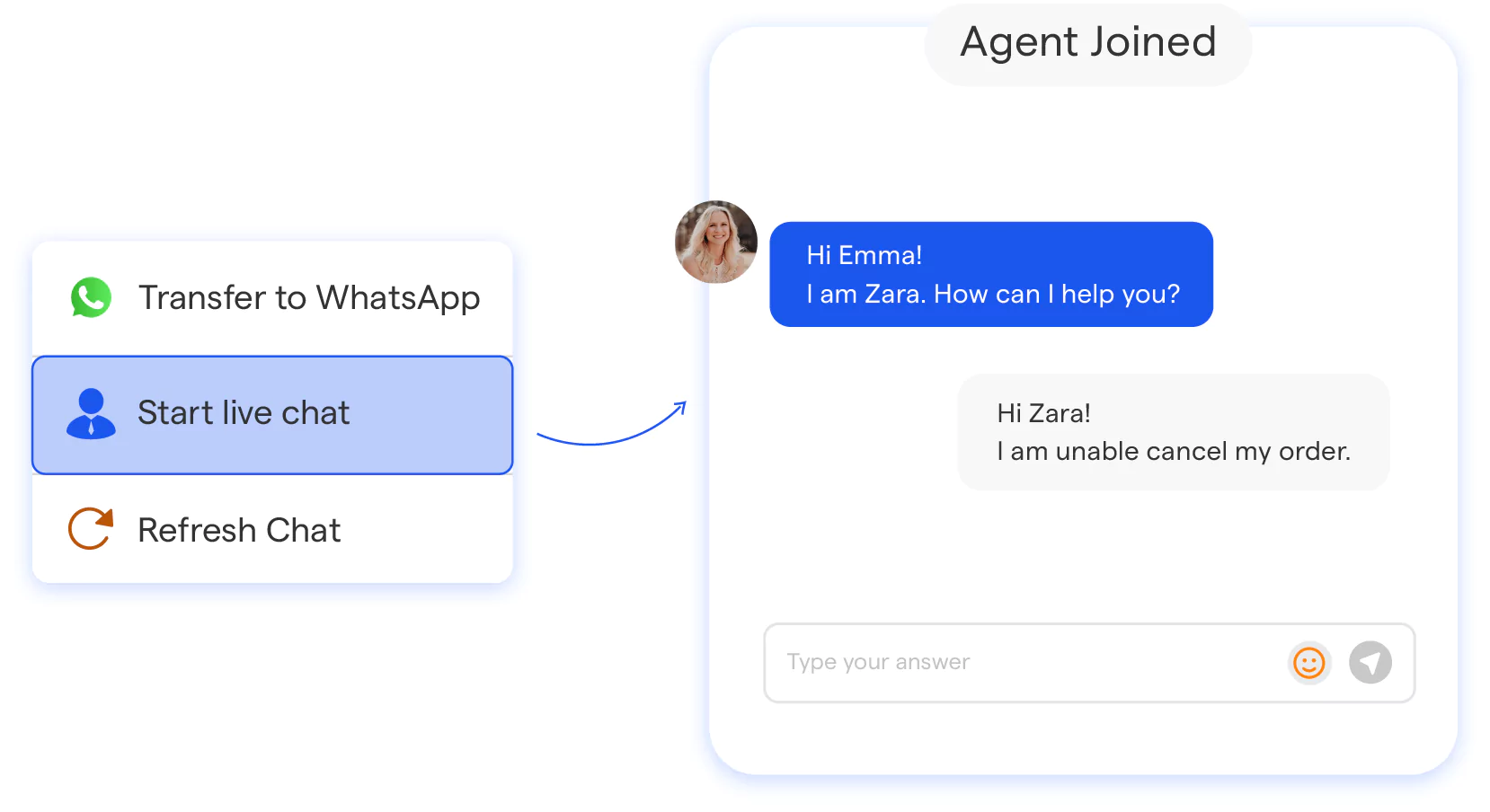
Powered by Conversational AI, chatbots have become integral to modern customer support, providing efficient assistance around the clock.
- 24/7 Availability: One of the standout benefits of Conversational AI in customer service is the ability to offer support at all hours.
Chatbots can handle inquiries anytime, ensuring that customers receive assistance even outside regular business hours, which significantly enhances customer satisfaction.
- Quick Response Times: Unlike human agents who may be busy or unavailable, chatbots deliver instant responses to customer queries.
This rapid reaction improves the overall customer experience, making interactions smoother and more efficient.
- Personalized Customer Experiences: With the capability to analyze customer data, chatbots can tailor their responses, providing solutions that align with individual needs.
This personalization fosters stronger customer relationships, leading to increased loyalty and satisfaction.
Virtual Assistants for Sales
Conversational AI is also transforming sales processes through virtual assistants that engage potential customers and drive sales.
- Product Recommendations: Virtual assistants can provide personalized product recommendations based on browsing history and preferences.
For example, Shopify's AI-powered tools help customers discover products they'll love, boosting sales and enhancing the shopping experience.
- Lead Generation: These assistants excel in lead generation by interacting with potential customers, gathering valuable information, and qualifying leads.
By automating this process, businesses can efficiently identify high-potential customers, saving time and resources.
- Sales Follow-Ups: Conversational AI services can automate essential follow-up communications. By sending reminders and answering questions, virtual assistants ensure that potential sales are nurtured and not lost due to a lack of engagement.
E-commerce
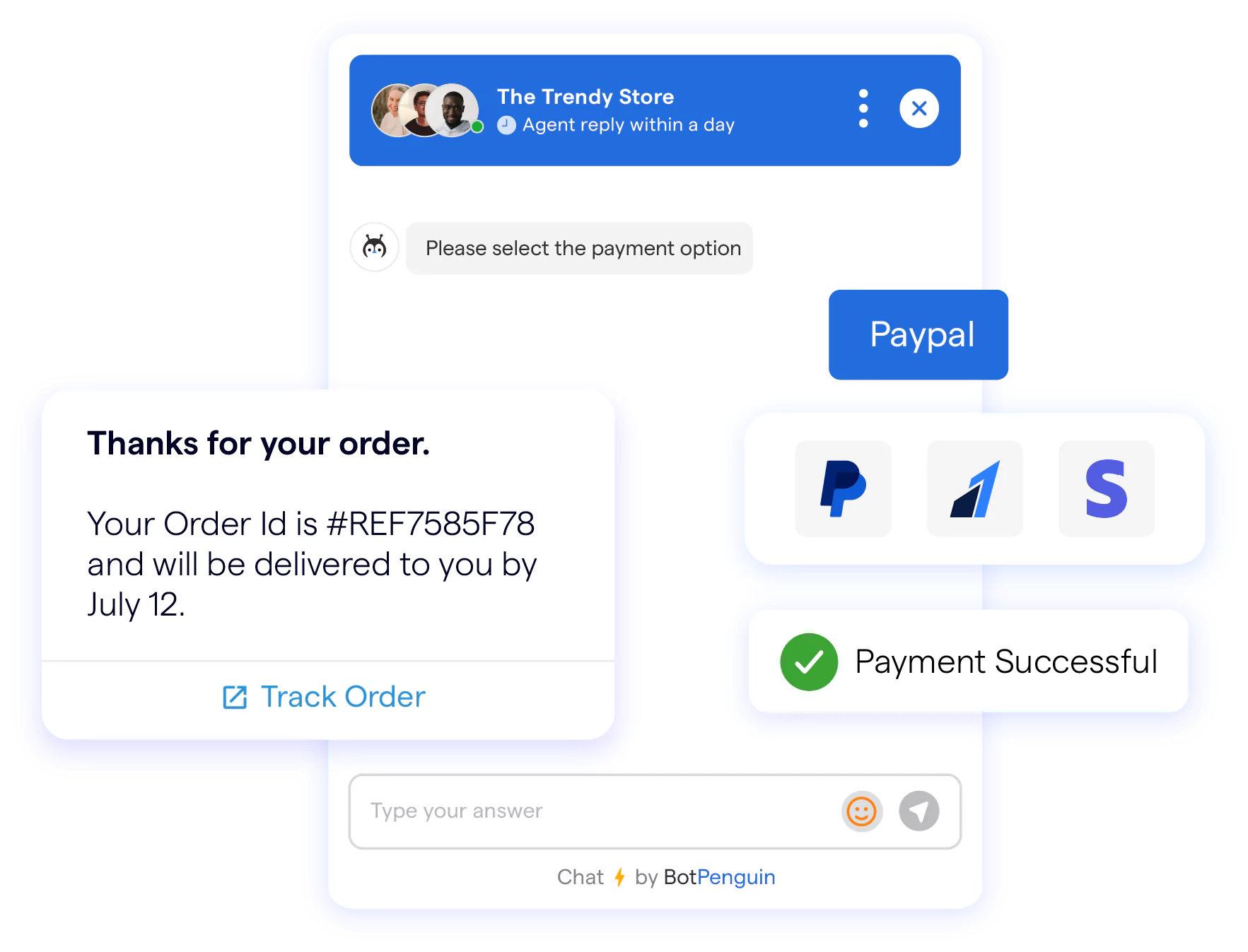
Conversational AI is reshaping the e-commerce landscape by enhancing the online shopping experience.
With AI-powered tools, customers can easily find and purchase products, leading to heightened satisfaction and increased sales.
Personalized Shopping Experiences
Personalization is a critical driver of success in e-commerce, and Conversational AI is pivotal in delivering tailored experiences.
- Product Recommendations: E-commerce platforms like Amazon utilize Conversational AI to offer personalized product recommendations based on customer behavior and preferences. This targeted approach not only helps customers discover products they are likely to buy but also enhances their shopping experience and increases conversion rates.
For instance, with BotPenguin, businesses can create chatbots that analyze user interactions to provide tailored suggestions, boosting sales.
- Virtual Try-Ons: Virtual try-ons are an exciting application of Conversational AI in e-commerce. Companies like Warby Parker allow customers to virtually try on glasses using augmented reality technology. This interactive experience enhances customer confidence in their purchasing decisions, ultimately leading to higher conversion rates.
- Order Tracking: Order tracking is another area where Conversational AI excels. Chatbots can provide real-time updates on order status, shipment tracking, and delivery estimates, keeping customers informed throughout their shopping journey. Solutions like BotPenguin can automate this process, ensuring customers receive timely updates and support.
Conversational Commerce

Conversational commerce is transforming how customers shop online by integrating purchasing and customer support directly into chat interfaces.
- In-Chat Purchasing: With Conversational AI, customers can complete purchases directly within a chat.
Platforms like Facebook Messenger allow brands to integrate purchasing functionalities, simplifying the buying experience and increasing conversion rates.
Businesses using BotPenguin can create seamless chat interfaces that guide users from product discovery to purchase without leaving the chat.
- Customer Support: Conversational commerce also encompasses customer support within the shopping experience.
Conversational AI services can answer questions, provide product information, and assist with issues—all within the same chat interface.
This integration makes the shopping process more efficient and customer-friendly. For instance, fashion retailers can utilize BotPenguin to create chatbots that handle inquiries related to sizing, shipping, and returns.
Banking and Finance
The Banking and Finance sectors have embraced Conversational AI to offer more efficient and personalized services.
From virtual financial assistants to fraud detection, Conversational AI solutions are enhancing how we manage our finances.
Virtual Financial Assistants
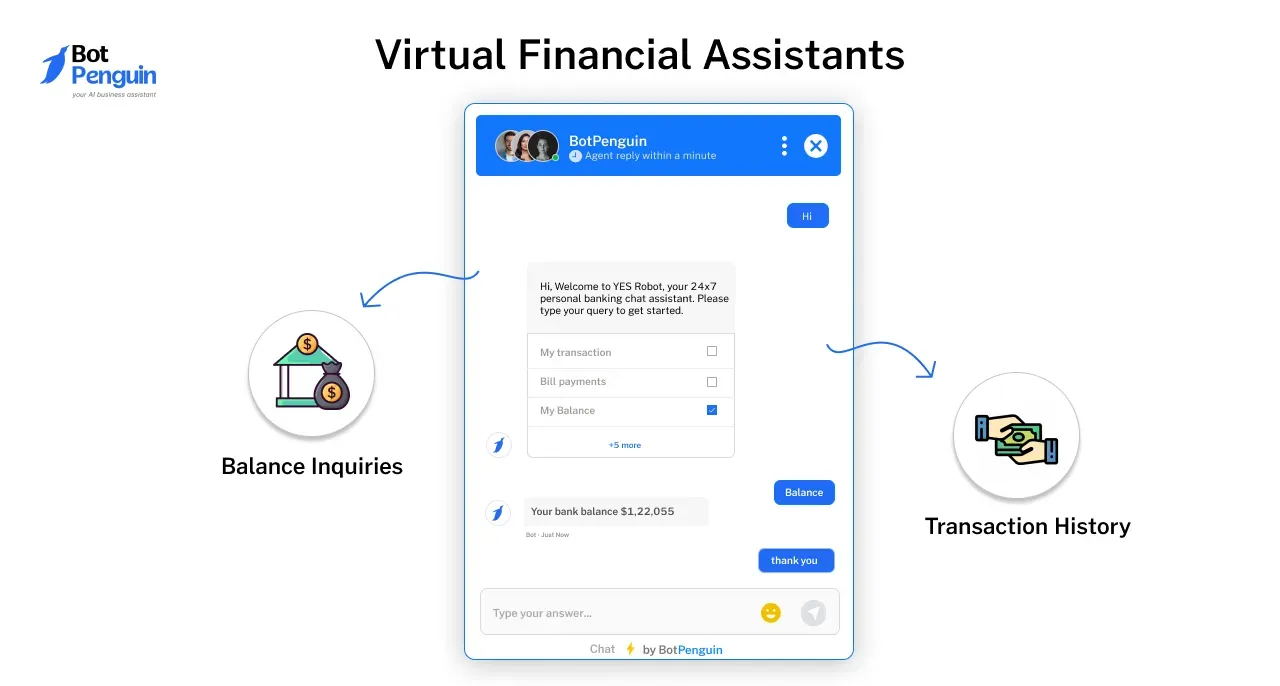
Virtual financial assistants are becoming a popular feature in banking apps, providing users with easy access to their financial information and services.
- Balance Inquiries: One of the most common applications of Conversational AI in banking is for balance inquiries.
Customers can quickly check their account balances through simple conversations with a virtual assistant, eliminating the need to navigate complex menus.
This convenience saves time and enhances user experience, as seen with banks like Capital One, which uses AI to streamline inquiries.
- Transaction History: Virtual financial assistants can also provide detailed transaction histories. With Conversational AI services, customers can ask for specific transactions, filter by date, or categorize their spending.
This level of detail empowers users to better understand their financial habits and make informed decisions. BotPenguin can facilitate this by integrating with banking systems to offer accurate, real-time financial data.
- Bill Payments: Another valuable feature is bill payments. Conversational AI allows customers to pay their bills effortlessly by instructing the virtual assistant to do so.
For example, banks like Chase leverage AI to automate bill payments, reducing the chances of missed payments and ensuring timely bill management. BotPenguin can help businesses create bots that handle payment requests seamlessly, enhancing customer convenience.
Fraud Detection
Fraud detection is a crucial area where conversational AI solutions are making significant strides.
By monitoring transactions in real time, AI-powered systems can identify and prevent fraudulent activities before they escalate.
Real-time Monitoring
Conversational AI can monitor transactions in real time, analyzing patterns and behaviors to detect potential fraud.
If suspicious activity is identified, the system can immediately alert the customer and take preventive measures, such as freezing the account or blocking a transaction.
This proactive approach enhances security, giving customers peace of mind. For instance, financial institutions that implement BotPenguin can utilize AI chatbots to provide instant alerts and guidance to customers during suspected fraudkknk scenarios, ensuring they remain informed and protected.
Suggested Reading:
5 Things to look for in a Conversational AI Platform
Fraud Prevention
Beyond detection, conversational AI services play a vital role in fraud prevention by educating customers about safe banking practices and alerting them to potential risks.
For example, AI can warn users about phishing attempts or provide tips on securing their accounts.
By using BotPenguin, banks can deploy chatbots that not only assist with transactions but also educate customers on avoiding common scams, effectively reducing the overall incidence of fraud and safeguarding their financial assets.
Education

Education is another field where conversational AI is revolutionizing learning experiences.
From language learning to tutoring, AI-powered tools provide students with personalized and interactive educational experiences that enhance accessibility and effectiveness.
Language Learning
Language learning applications are leveraging conversational AI to create personalized and engaging experiences for learners.
- Personalized Language Practice: Conversational AI solutions enable learners to practice languages tailored to their skill level and pace.
The AI adapts to the user’s progress, offering targeted exercises and challenges to improve language skills more effectively. For example, a language app integrated with BotPenguin can adjust the difficulty of exercises based on the user’s performance, ensuring an optimal learning curve.
- Conversation Simulations: One of the standout features of conversational AI in language learning is conversation simulations.
These allow learners to practice real-life conversations with AI, which responds naturally, helping users improve their speaking and comprehension skills. This immersive approach makes learning a new language more practical and engaging.
Tutoring and Homework Help
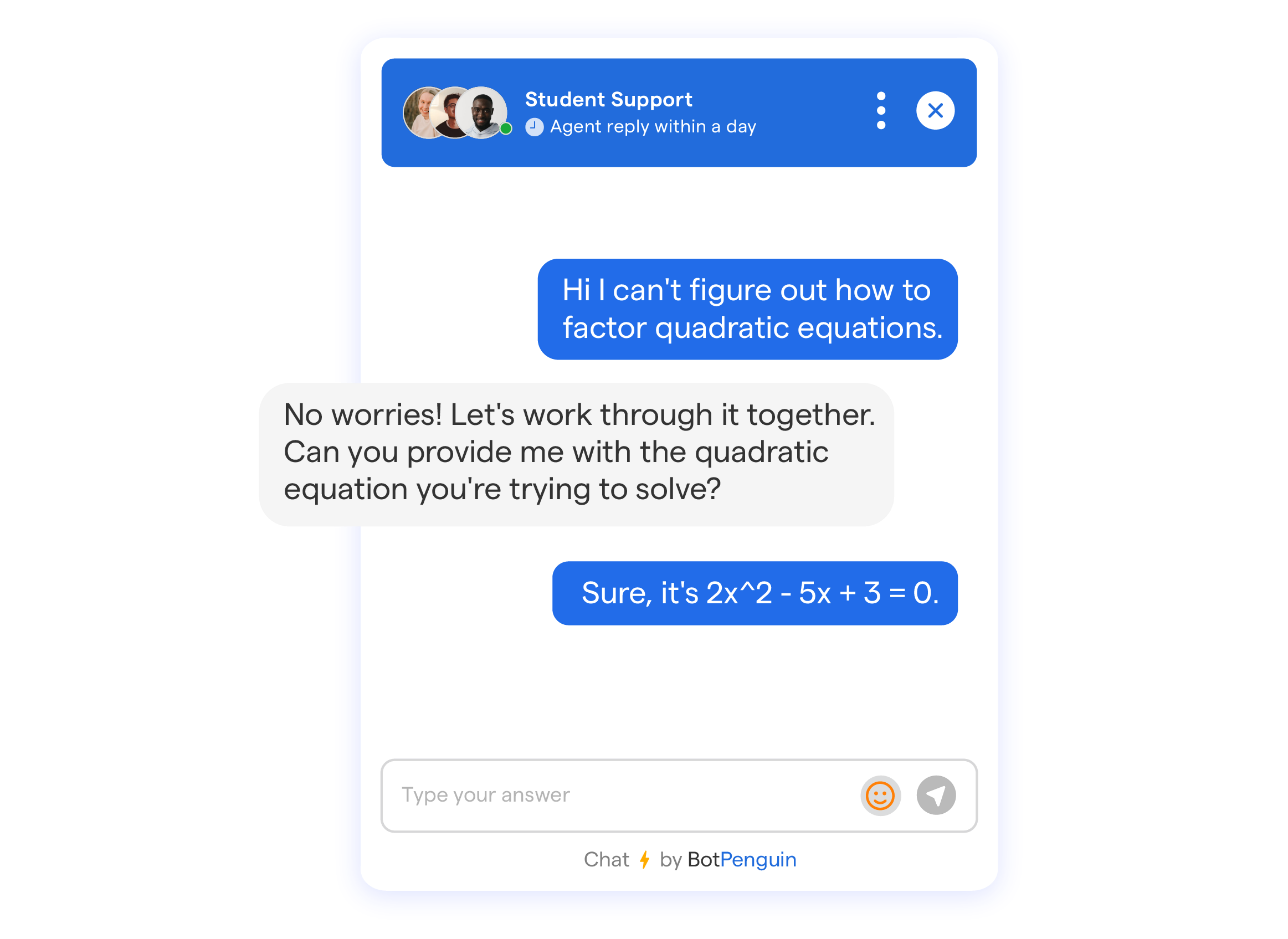
Conversational AI is also transforming tutoring and homework assistance by providing students with on-demand help.
- Subject-Specific Assistance: Virtual tutors powered by conversational AI can offer subject-specific guidance. Whether it’s math, science, or history, these AI tutors provide explanations, solve problems, and guide students through challenging concepts.
Integrating BotPenguin allows educators to create customized tutoring bots that adapt to individual learning needs, enhancing educational outcomes.
- Question Answering: Another essential application is question answering. Students can ask the AI any academic question, and it will deliver clear and concise answers. This instant support aids students with their homework and study sessions, ensuring they receive help when needed.
Entertainment
Conversational AI is also making waves in the entertainment industry, creating interactive storytelling experiences and enhancing gaming and virtual worlds.
Interactive Storytelling
Interactive storytelling offers a new way to engage audiences, where stories adapt to the choices and preferences of the user.
- Branching Narratives: Conversational AI enables branching narratives where the storyline unfolds based on user decisions.
This technology allows creators to build multiple plotlines, giving audiences control over the narrative direction. With tools like BotPenguin, storytellers can develop interactive experiences that increase engagement and create personalized journeys for users.
- Customized Experiences: Beyond branching narratives, conversational AI services can tailor the storytelling experience using user data.
Whether it's adjusting dialogue or plot complexity based on responses, conversational AI provides a unique experience for each individual, setting interactive storytelling apart from traditional narratives.
Suggested Reading:
Why is BotPenguin the best Conversational AI Platform?
Gaming and Virtual Worlds
Gaming and virtual worlds are prime areas where conversational AI enhances experiences, making them richer and more dynamic.
- Non-Player Characters (NPCs): Conversational AI has transformed how NPCs interact in games. Rather than following pre-set scripts, NPCs can engage in meaningful conversations, reacting dynamically to player actions and decisions.
This advancement creates a more immersive and interactive gaming experience, allowing players to feel like they’re interacting with intelligent beings.
- In-Game Interactions: In-game interactions have also been enriched by conversational AI solutions. Players can use natural language to communicate with the game world, whether it’s asking for assistance, issuing commands, or exploring environments.
This capability fosters a more fluid and engaging gameplay experience, making the game world feel alive and responsive.
5 Key Challenges and Considerations in Implementing Conversational AI
While the benefits of conversational AI are substantial, its implementation comes with its own set of challenges and considerations that organizations must address to achieve success.
Here are some key challenges and real-world examples illustrating how companies have navigated these issues:
1. Data Privacy and Security
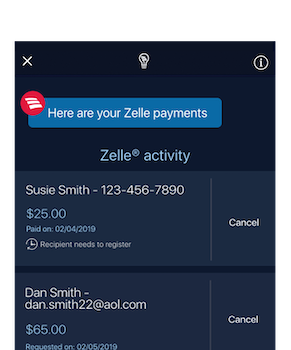
As conversational AI systems often handle sensitive information, ensuring data privacy and security is paramount. Organizations must comply with regulations like GDPR and CCPA, requiring robust data protection measures.
Example: Bank of America employs Erica, a virtual financial assistant. To maintain customer trust, the bank prioritizes data security, implementing strict encryption protocols and ensuring compliance with financial regulations, while educating users on safe digital practices.
2. Natural Language Understanding (NLU) Limitations
Conversational AI systems can struggle with understanding diverse dialects, slang, or colloquialisms, potentially leading to miscommunication. Improving NLU capabilities is essential for accurate interactions.
Example: Duolingo has invested heavily in enhancing its NLU to help users learn new languages.
By analyzing user interactions, they continually refine their AI algorithms, ensuring that the system can understand varied language inputs, thus providing a better learning experience.
3. Integration with Existing Systems
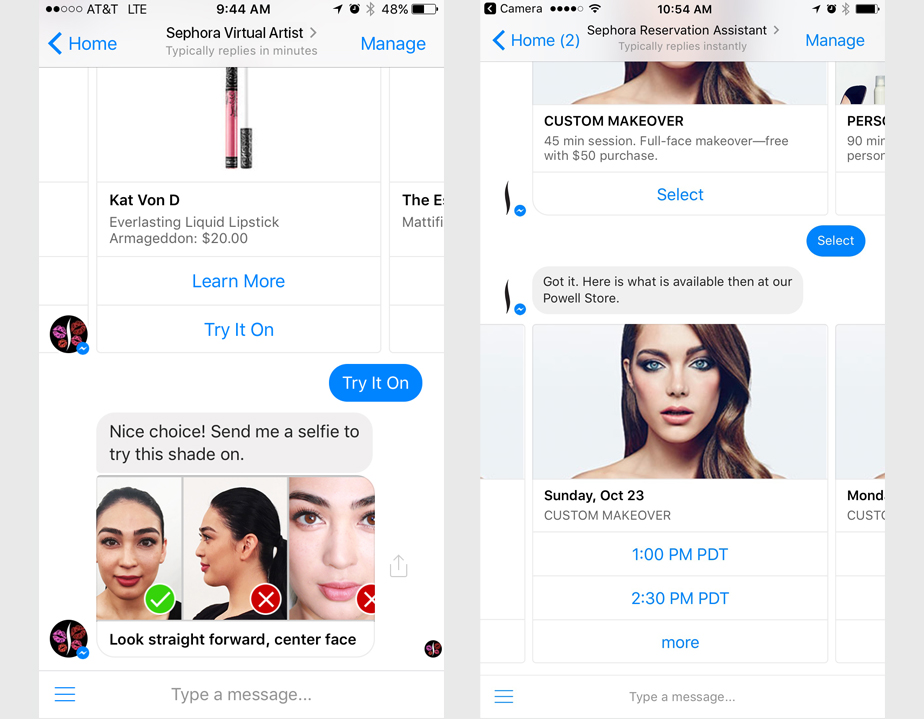
Integrating conversational AI with existing systems (like CRM, ERP, or customer support platforms) can be complex. Organizations need to ensure seamless communication between different technologies.
Example: Sephora successfully integrated its chatbot with its existing e-commerce platform, enabling users to browse products and make purchases directly through the chatbot interface.
This integration streamlined the customer journey and enhanced the shopping experience.
4. User Acceptance and Adoption
Introducing conversational AI can be met with resistance from users who prefer traditional interactions. Organizations must consider user training and awareness to promote acceptance.
Example: Macy's launched their virtual shopping assistant, On My Way, to enhance customer engagement.
To ensure successful adoption, Macy’s implemented a marketing campaign that educated customers about the benefits of using the chatbot, leading to increased engagement rates.
5. Maintaining Human Touch
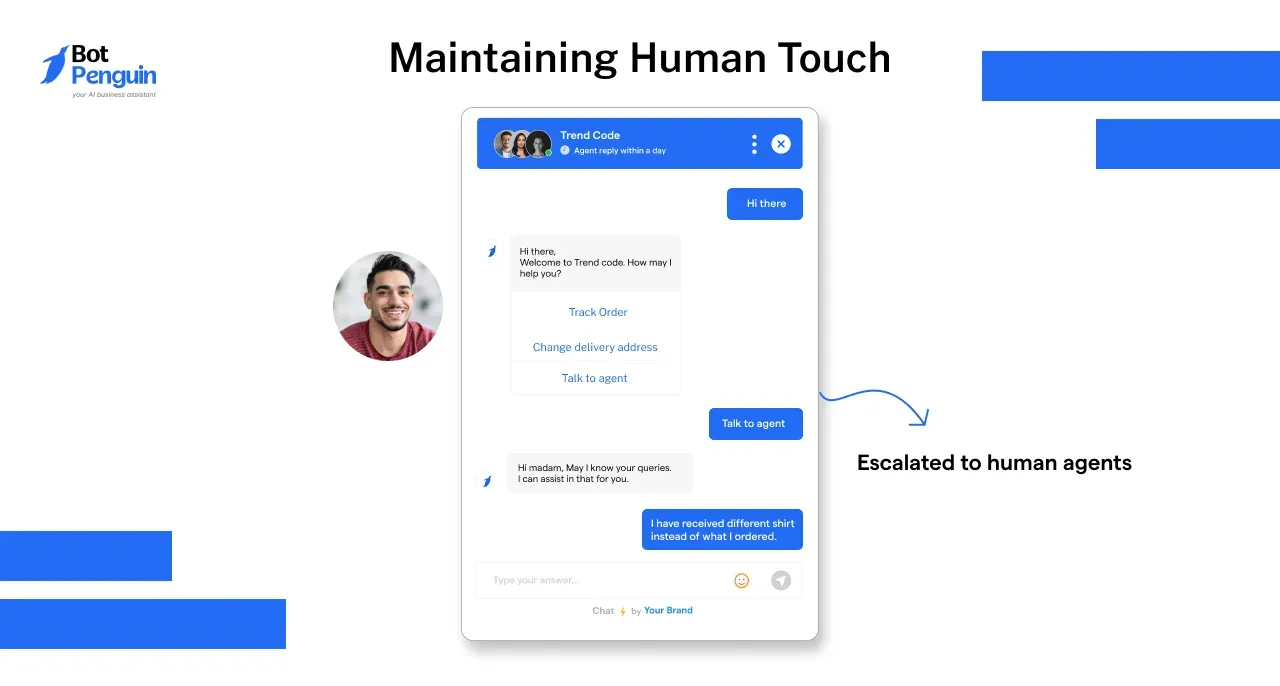
While automation is essential for efficiency, maintaining a human touch in customer interactions is crucial. Striking the right balance between AI and human support can be challenging.
Example: H&M uses a chatbot for basic inquiries but ensures that more complex issues are escalated to human agents. This hybrid approach maintains customer satisfaction while optimizing operational efficiency.
Conclusion
In conclusion, conversational AI is revolutionizing various sectors, from e-commerce and finance to education and entertainment.
By enhancing user experiences through personalized interactions, real-time monitoring, and dynamic storytelling, these AI solutions are not just improving efficiency but also creating more engaging and secure environments.
In e-commerce, platforms harness AI for tailored product recommendations and seamless in-chat purchasing, elevating the shopping experience.
The banking sector benefits from AI-driven fraud detection and virtual financial assistants that make managing finances simpler and safer.
In education, AI-powered tutors provide on-demand assistance, helping students learn at their own pace. Meanwhile, the entertainment industry leverages AI to craft interactive narratives and immersive gaming experiences.
As conversational AI continues to evolve, its potential to transform industries and enrich our daily lives will only expand, making it an invaluable asset for businesses and consumers alike. Embracing these innovations is key to staying competitive and responsive in a rapidly changing landscape.
Frequently Asked Questions (FAQs)
What is Conversational AI, and how does it work?
Conversational AI refers to advanced technologies, including natural language processing (NLP), machine learning, and speech recognition, that enable systems to comprehend and respond to human language.
This allows for real-time conversations and personalized interactions across various industries, improving communication and engagement.
How is Conversational AI used in customer service?
In customer service, Conversational AI enhances support by providing 24/7 assistance, delivering quick responses, and offering personalized experiences through chatbots and virtual assistants.
This technology boosts customer satisfaction and streamlines service processes, making it easier for customers to get the help they need.
What are the benefits of Conversational AI in healthcare?
Conversational AI delivers significant benefits in healthcare, including symptom checking, medication reminders, and mental health support.
By improving patient care and making healthcare services more accessible and efficient, Conversational AI enhances the overall patient experience.
How does Conversational AI enhance the e-commerce experience?
In e-commerce, Conversational AI enhances the shopping experience through personalized product recommendations, virtual try-ons, and real-time order tracking.
These features create a more engaging and tailored shopping journey for customers, ultimately driving sales and satisfaction.
Can Conversational AI assist in fraud detection?
Absolutely! Conversational AI aids in fraud detection by monitoring transactions in real-time, identifying suspicious activities, and preventing fraud with proactive alerts.
Additionally, it educates users on safe banking practices, further enhancing security.
What are the challenges of implementing Conversational AI?
Implementing Conversational AI can pose several challenges, such as technical limitations, ethical concerns regarding data privacy, and the need to ensure a seamless user experience.
Striking the right balance between innovation and usability is crucial for effective application across various industries.



